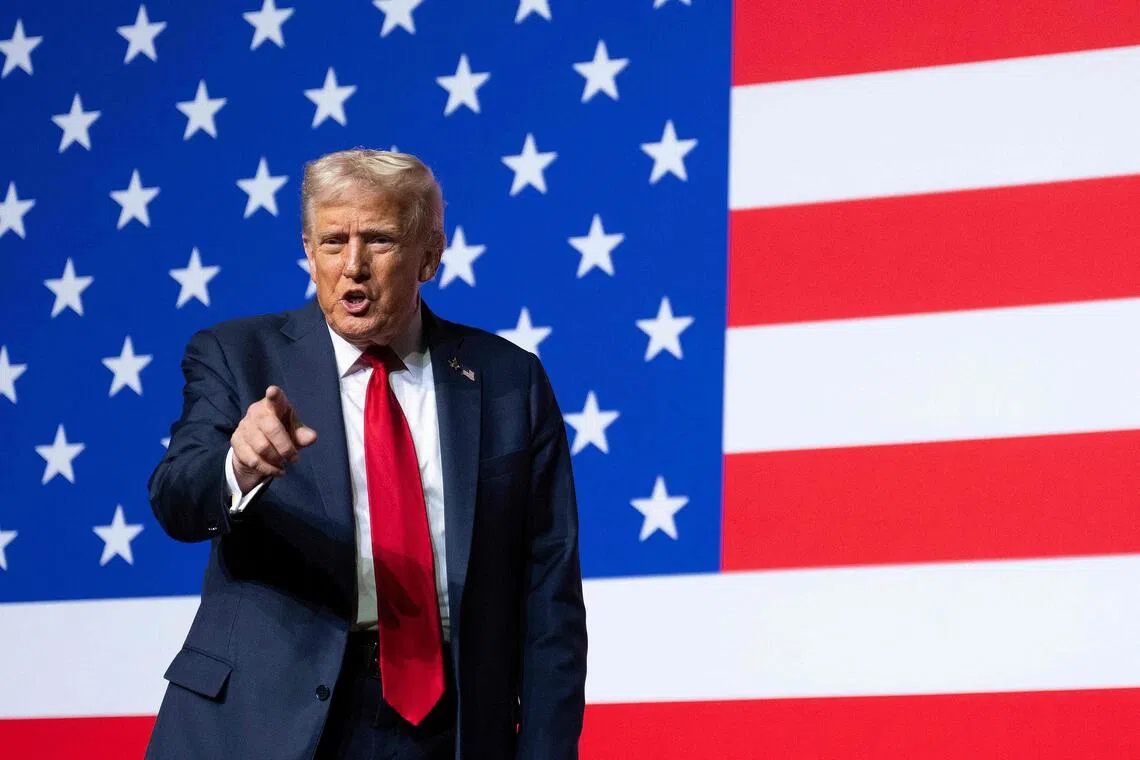Trump order directs use of AI to boost childhood cancer research
Sign up now: Get ST's newsletters delivered to your inbox

US President Donald Trump said the order doubles the investment in the NIH’s childhood cancer data initiative, with more funding possible in the future.
PHOTO: AFP
Follow topic:
WASHINGTON – US President Donald Trump directed the federal government to use artificial intelligence to improve childhood cancer research and funnel US$50 million (S$64.5 million) to the National Institutes of Health (NIH) for that initiative, even as his administration pursues other cuts at the agency.
“For years we’ve been amassing data about childhood cancer, but until now, we’ve been unable to fully exploit this trove of information and apply it to practical medicine,” Mr Trump said in the Oval Office on Sept 30 as he signed the directive.
“Using cutting-edge AI, we will empower scientists and researchers to discover new treatments, cures and prevention strategies. AI can also make groundbreaking trials and therapies and just going to be so accessible to everybody.”
The order directs the Make America Healthy Again (Maha) Commission to work with the Office of Science and Technology Policy (OSTP) to utilise AI for childhood cancer research.
Mr Trump said the order doubles the investment in the NIH’s childhood cancer data initiative, adding another US$50 million, with more funding possible in the future.
A White House official, who briefed reporters earlier on Sept 30, cast it as a way to both encourage top scientists to improve data collection and find uses for existing data on childhood cancer to further research.
Mr Michael Kratsios, director of the OSTP, touted the effort as one that could lead “to enhanced diagnostics, optimised treatments and, we hope, new cures”.
The so-called Maha Commission that will work with the science agency is chaired by Health Secretary Robert F. Kennedy Jr, and tasked with addressing what he has cast as an epidemic of chronic disease among children.
Mr Kennedy, who holds unorthodox views on public health, has played a key role in revamping the federal government’s approach to medical science.
Those changes have seen the administration move to overhaul the US Department of Health and Human Services, laying off thousands of scientists and researchers and cancelling research grants.
At the NIH, more than US$1 billion of research grants funded by the agency was cut in the first three months of the year and thousands of grants were rejected, including ones for cancer research.
The funding cuts were wrapped up in multiple lawsuits, and the US Supreme Court allowed millions to continue to be cut off from medical research in August.
The administration proposed a nearly 40 per cent funding cut to the NIH – which encompasses the National Cancer Institute – in the President’s budget proposal.
Health spending and subsidies for care are also at the centre of a funding fight in Congress that has the US government poised to shut down at midnight if lawmakers cannot reach an agreement.
Democrats are seeking to renew healthcare tax credits and a reversal of Medicaid funding cuts, while Republicans are insisting on what they call a clean continuing resolution to keep funding that government that does not include other policy measures. BLOOMBERG

